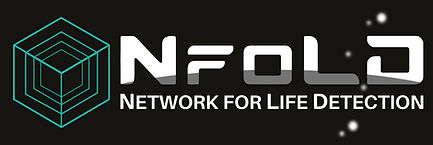Weekly NfoLD Round-Up!
- AstrobioBurcar
- Mar 17, 2023
- 2 min read
Upcoming NfoLD Forum on March 21st at 4pm ET.
Our next NfoLD Forum will be taking place next Tuesday! Due to heated discussions within the Steering Committee we are devoting this time to discuss Nanopore Technology and its application to space flight technology. Chris Carr from Georgia Tech will be giving an overview and then the Co-Leads will be leading the subsequent discussion. If you're on the NfoLD Steering Committee, or are a Member, you should have received an invitation to attend the meeting and discussion. If you're a Subscriber, you'll receive a direct invitation to tune into the talk live. Want to see the talk live, become a subscriber!
Dr. Richard Allen White III
Dr. Richard Allen White III has joined us as our latest Steering Committee Member! He research in NfoLD focuses on viruses, their role in the evolution of life, and biopreservation of signals of life. Here is a snippet from the RAW Lab website:
Our lab group is elucidating the largest genetic repository on planet Earth – the global virome (virosphere) which is the totality of viral diversity, viral functions, viral-host interactions, and their relationship with health and the environment. The global virosphere represents the largest library of functional unknown genes on the planet. We currently lack a clear understanding regarding viral impacts on gene function, metabolism, and genetic exchange across various ecosystems, including terrestrial and host-associated habitats. Synthetic biology through engineering principles will be the key to unlocking this massive global gene repository. The bedrock of work is how "viral lifestyles", (i.e., whether lytic or lysogenic) in bacteriophage (viruses that infect bacteria) impacts the 'guts' of humans, plants (e.g., the rhizosphere), and modern microbialites. We are using synthetic biology to tackle human viruses COVID-19 and other RNA viruses (e.g., Influenza and Henipavirus). The goal of our work is to produce universal antivirals for RNA viruses, bacteriophage therapy for multidrug-resistant bacteria, unlocking the functional potential of the virome using computational multiomics, and use bacteriophage to geologically trap carbon as carbonates in order to mitigate climate change. Join us in our endeavor to leave this ‘pale blue dot,’ better than we found it.
The Lunar and Planetary Science Conference 2023 (LPSC 2023) has been buzzing with activity this week as thousands of astrobiologists, lunar, and planetary scientists have converged on the Woodlands in Texas. Sessions ranged across the solar system, including Earth analog research. Importantly, in its 54th year, LPSC had an historic first main program DEIA session which was very well attended. Open Science was top of many discussion points with the new requirements in the ROSES solicitations. The NfoLD community was present, for example, NfoLD steering committee co-lead Heather Graham could be spotted by her poster on Icy body analogs on Thursday night, and several members of the steering committee and ECC presented posters and talks in the astrobiology and exobiology sessions. If you weren't able to attend, you can check out some highlights by checking out #LPSC2023 or #NfoLD (to see our live tweets from last week!) on Twitter.

Comments